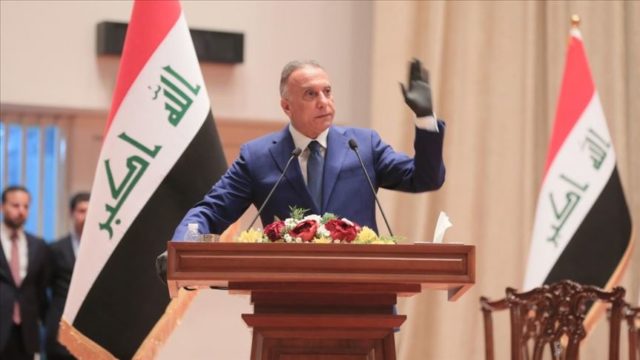
The Iraqi Parliament swore in Mustafa Al-Kadhimi as the new prime minister May 7, also approving three-quarters of his cabinet. Iraqi politicians hope the leadership change will bring stability to the government in Baghdad and end months of riots and political unrest.
Al-Kadhimi is well known to politicians abroad, acting as director of Iraq’s National Intelligence Service since 2016. Western supporters note his integral role in the fight against Islamic State during the time. Al-Kadhimi is the third prime minister to be nominated in a span of five months since the nationwide anti-government protests prompted Adel Abdul Mahdi to step down in November. Al-Kadhimi politicians hope that nationalist background will help stem the fight for influence between Iran and the United States that has engulfed the country and also grow the economy.
As political and economic problems mount in Iraq, the first few months of Al-Kadhimi’s term will be challenging. Only four days after Al-Kadhimi became prime minister, the army shot a 20-year-old man during a large protest. Citizens have been protesting as unemployment has risen, especially among younger Iraqis. Twenty-five percent of young adults are unemployed as of 2019 and the coronavirus pandemic, with a drop in world oil prices, is further aggravating the situation. Oil represents 90% of the government’s revenue and is now under $30 a barrel, leading to a massive budget shortfall. The Iraqi population is in need of more government assistance than ever before, with almost all businesses closed as a response to the pandemic.
Prime Minister Al-Kadhimi must also balance the deteriorating Iran-Iraq relationship and U.S.-Iranian rivalry in Iraq. As a result of increased sanctions on Iran led by the United States, Iran has been stealing and moving Iraq’s oil. In addition, Iran’s use of the country to plot against U.S. interests led to the assassination of Iran’s Islamic Revolutionary Guard Corps General Qassem Soleimani inside Iraq last year. Iran immediately fired missiles at two U.S. bases in Iraq as a response. Although an escalation has been averted, this ongoing conflict on Iraqi soil is an issue Al-Kadhimi will have to carefully address during his time as prime minister.
Washington welcomed Al-Kadhimi only hours after he was confirmed, with a 90-day extension in suspended sanction for the purchase of crucial Iranian gas. Four days later, President Trump called the new prime minister to offer economic assistance. The positive attitude from the Trump administration comes as the new Iraqi leadership hopes a good relationship with Washington will help fix the country’s economic troubles.

